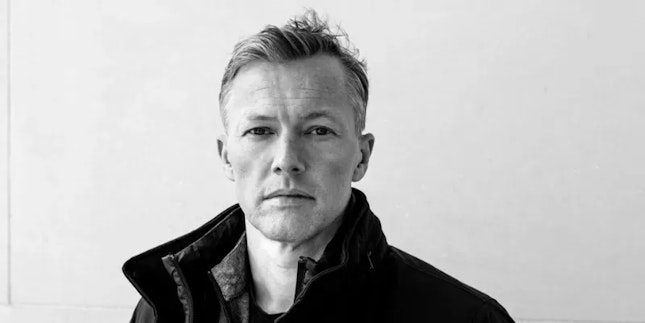
According to Pulitzer Prize-winning author Matthew Desmond, poverty is more than an income level. It’s a lived experience – one that often strips individuals of their inherent dignity.
“Poverty isn’t a line, it’s a constellation of social maladies and humiliations,” he said. “It’s the eviction notice, the debt collectors blowing up your phone, and not being able to afford a dentist. It’s the suffocation of your talents and your dreams.”
On April 24, Desmond joined Robert F. Kennedy Human Rights board member Mark Gearan, president of Hobart and William Smith Colleges, to discuss his most recent book, “Poverty, By America.” Drawing upon his personal experiences, other people’s stories, and extensive research, Desmond’s book highlights an often-overlooked contributor to poverty in America – ourselves.
“The book essentially tries to shift the poverty debate away from the poor themselves to those of us that are often very secure in our money and may be unwittingly contributing to all this poverty and scarcity,” he said.
A sociologist and professor at Princeton University, Desmond has a long and distinguished career studying poverty, public policy, housing insecurity, and racial inequality. He leaned on that academic background to write “Poverty, By America,” but he also spent hours listening to peoples’ stories and learning from their experiences.
The son of a preacher, Desmond grew up in a household where money was always tight. He spoke with firsthand knowledge of the “indignities and pressures of poverty,” explaining how those early childhood experiences piqued his interest in economics, sociology, and how America treats those who have fallen on hard times.
Prompted by Gearan to unpack the “astonishing lack of progress” in our public policy, Desmond summarized a recent history of America’s anti-poverty investments and explained why that history has often confused the public.
In the early 21st century, the government’s response to poverty centered on market intervention. New Deal policies empowered workers and regulated banks, as well as the stock market. But during President Johnson’s “War on Poverty” in the 1960s, that policy shifted. Instead of intervening in markets, the government focused on individual assistance through food stamp programs and government health insurance.
“We went from an interventionist to an accommodationist welfare state,” Desmond said. “I think that means sometimes we’re spending more to stay in the same place.”
Citing housing assistance as one example, Desmond made the case that truly ending poverty will require different types of investments. While federal spending on housing assistance has increased 16% since 2000, the number of individuals receiving that assistance has stayed roughly the same. The reason behind the increase? Higher rental prices.
“We’ve designed our welfare policies to be the public financiers of private goods, and when that happens without a market check, we may just be filling a bucket with a hole in the bottom,” Desmond said. “To really get serious about ending poverty, we don’t just need deeper investments…We need different investments as well.”
Desmond pointed to the COVID-19 pandemic as proof that government intervention can make an impact. President Biden’s American Rescue Plan and elements within it – the extended child tax credit and emergency rental assistance – played a significant role in driving down poverty.
“It was the policy that did the most to enact this enormous reduction in child poverty, reducing child poverty by about half in six months,” he said. “We have this clear case where we saw what the government can do when it really gets serious about fighting poverty.”
In addition to policy and structural change, Desmond encouraged the audience to consider personal change. He explained that we are all connected to the problem – and by extension, we are all connected to the solutions.
From a financial perspective, Desmond highlighted tax breaks as one area of personal and moral responsibility. Our welfare state, he argues, includes Social Security, Medicaid, and food stamps, but it also includes tax breaks, as those breaks ultimately cost the government.
“If you add up everything the government does for us, you learn that families in the top 20% of the income distribution get a lot more from the government every year than families in the bottom 20%,” he said. “We do a lot more to subsidize affluence than expand opportunity.”
Building on that foundation, Desmond challenged audience members to act differently through their daily decisions, whether by showing up at city zoning meetings or rethinking where to shop, how to invest, and how to spend tax refunds.
“What can you do?” he asked. “I think if more of us think about that question, that's how we create political will. No matter who we are or how we’re wired, there’s a lot of ways we can start taking these steps in personal and political ways to fight poverty.”
Help Us Protect Human Rights
Please give now. Your contribution will make a difference in the critical effort to achieve equal rights for all.